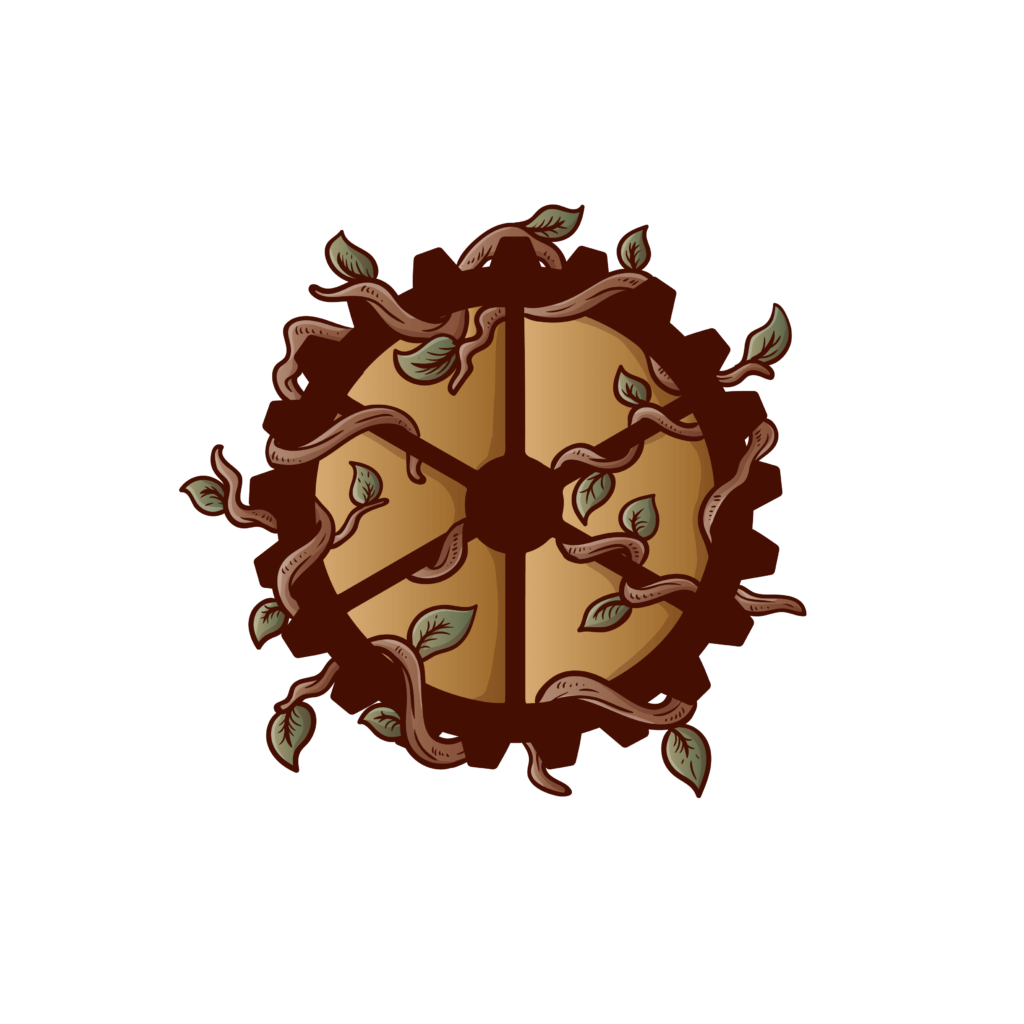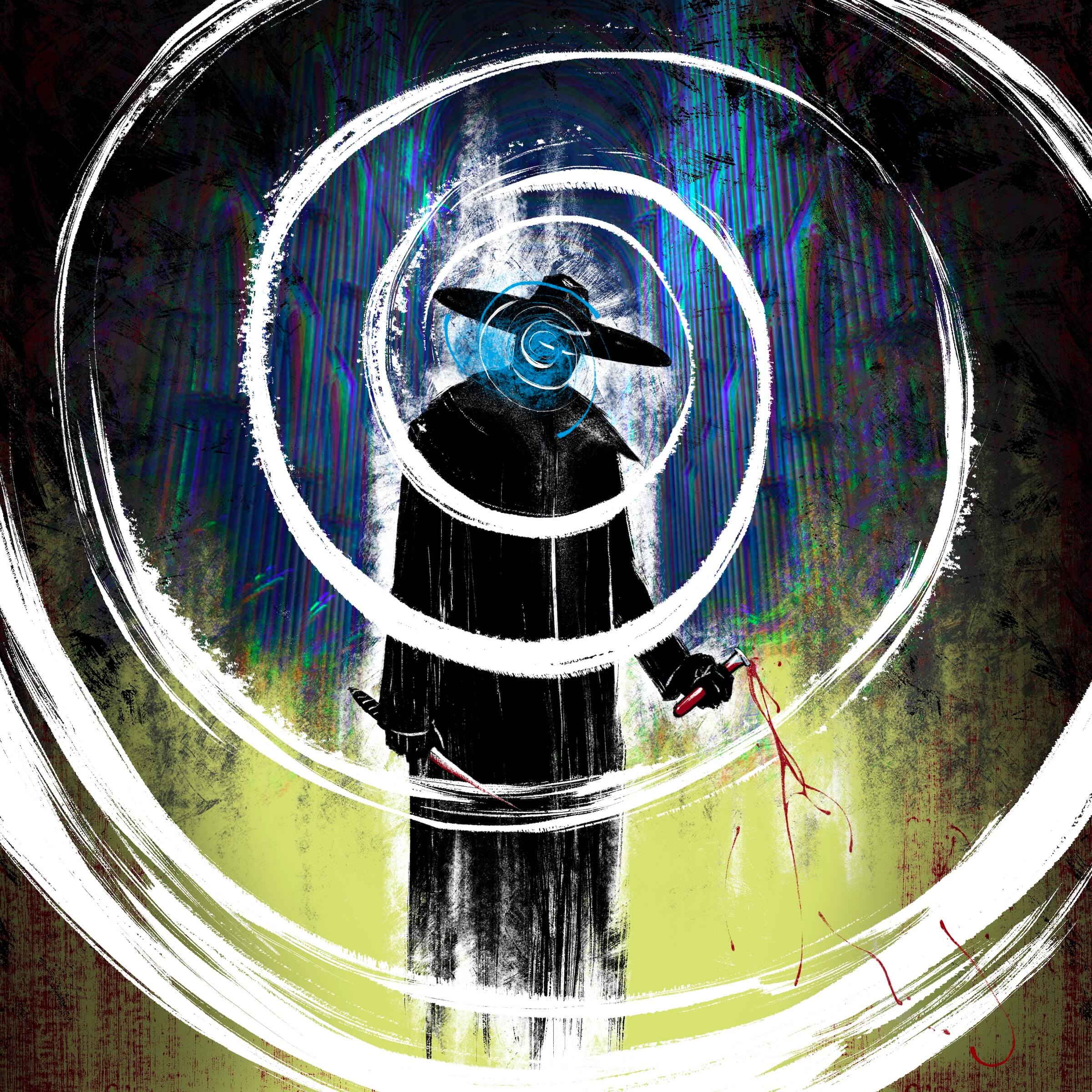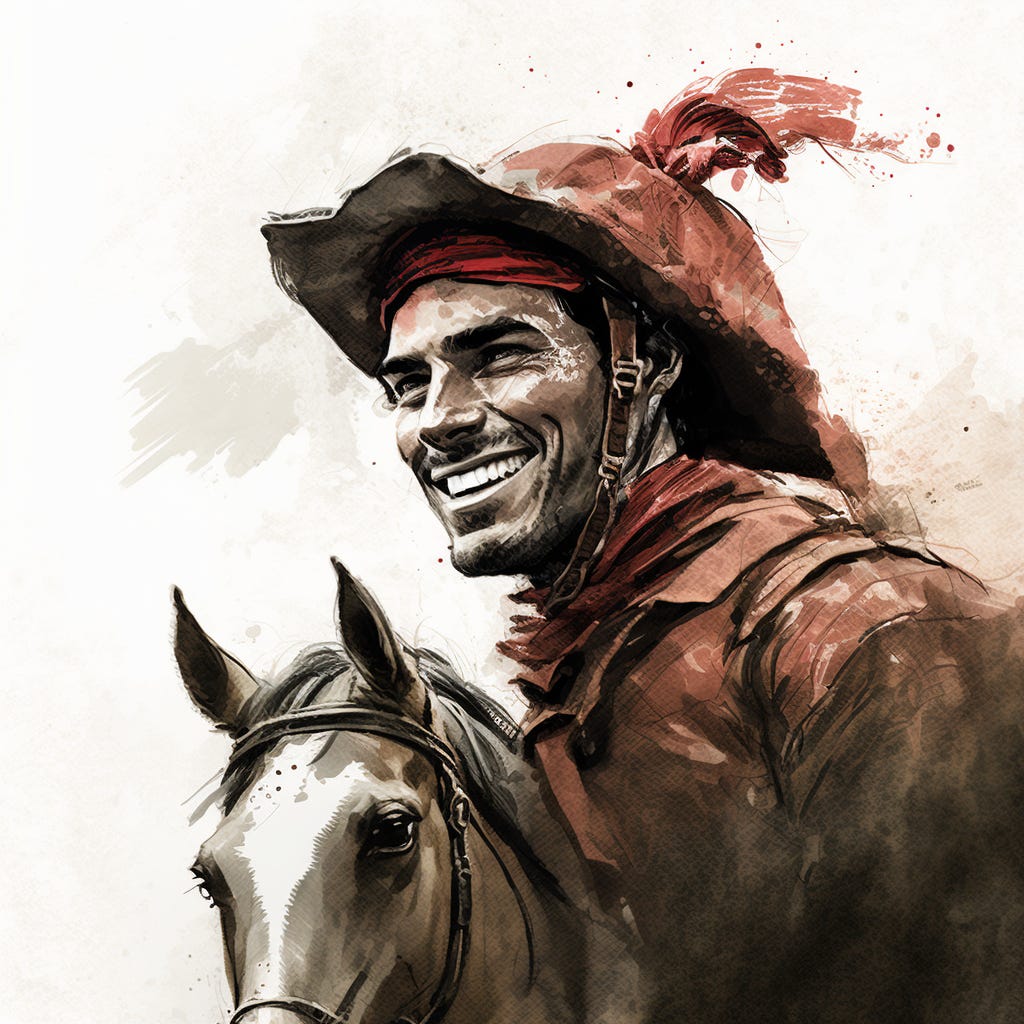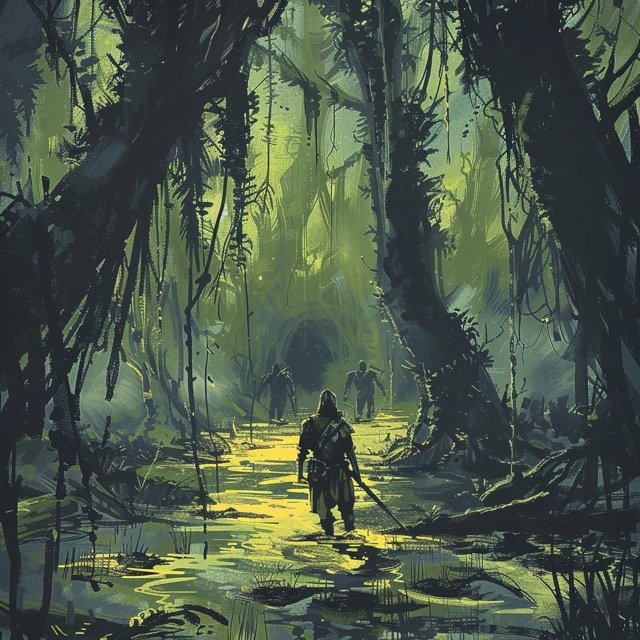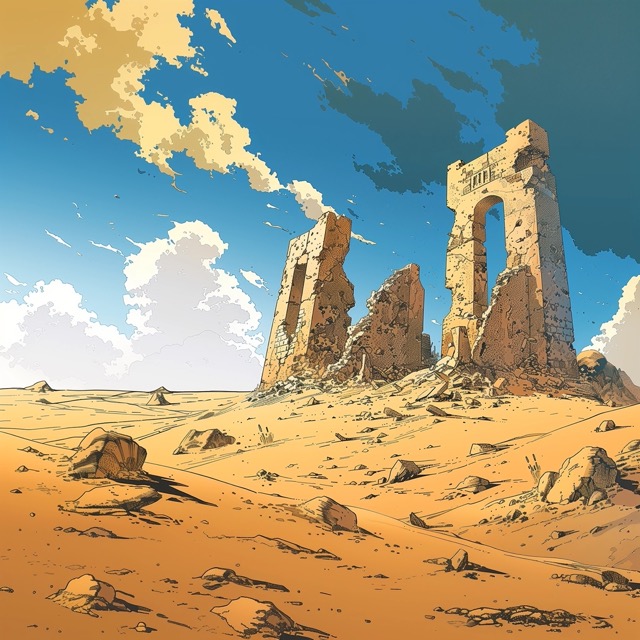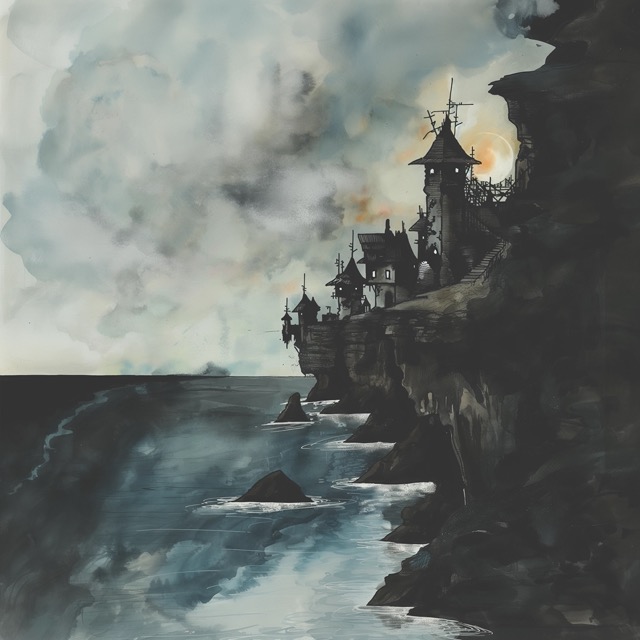The Origin of the Flaming Pumpkin & the Bloody Bonnets
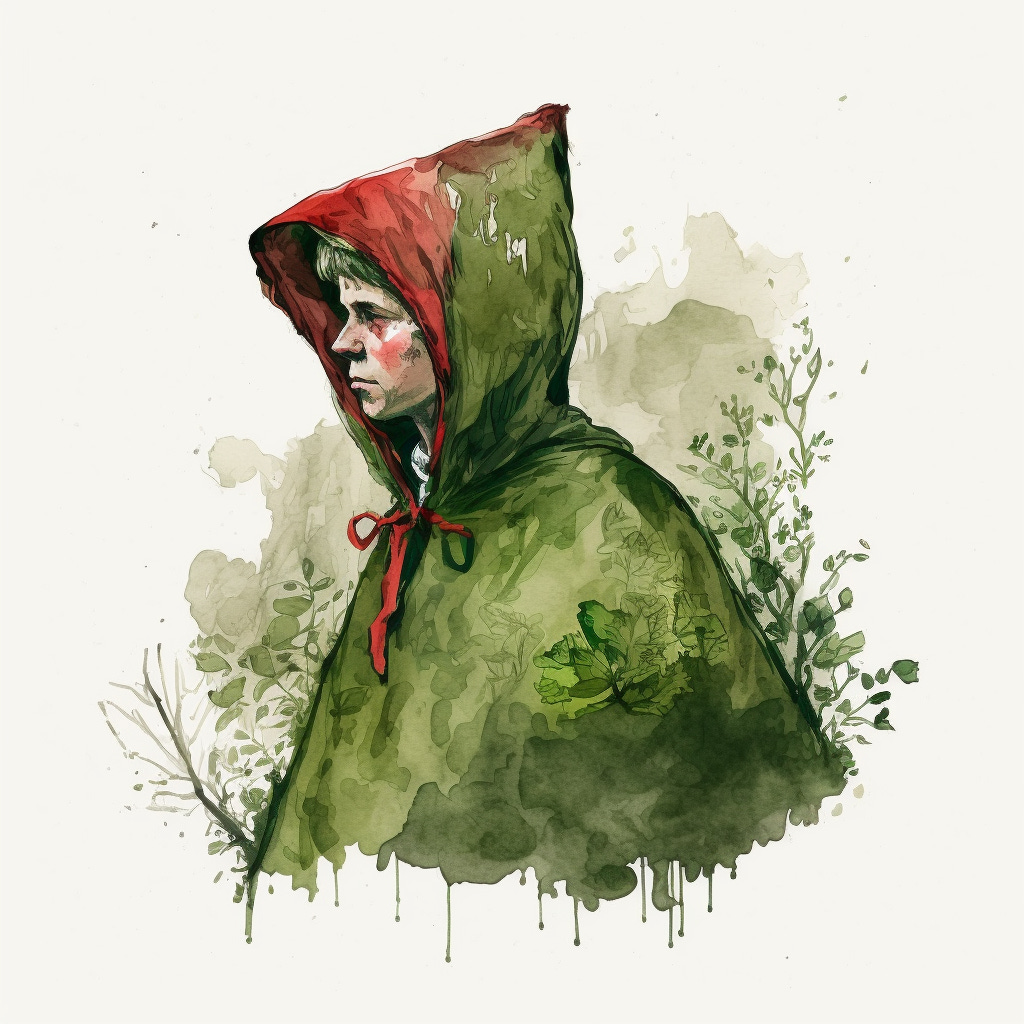
Arrived in Barrowmarch without incident from the port at Lake Kine. The common folk chafe at new taxes for the Imperium. Banditry and superstition are common.
Official Report by Dahlchus Mithryen to the Imperial Governor, East Sindar Region
From the personal journal of Dahlchus Mithryen:
The Barrowmarch is a land of moors and mist enshrouded by the shadow of the Sindar Mountains, a place where it is easy to become lost in and hard to escape.
When I arrived, I assumed I would be warmed at the hearth of the new Chieftain at Lairdsmont. The wood-and-hide stronghold, modest by our standards, sits on a crag overlooking the trading town of Lairdston below. Yet high as his redoubt may be, Master Dunald Cumber sits uneasily on his throne there. His fledgling overlordship is conditional upon delivering a promised but as-yet unrealized bounty from the Barrowmarch’s suzerainty to the Amal Court. From what I’ve seen of the local unrest — brigandry, theft, murdered men-at-arms, and worse — Dunald’s efforts to win his seat may cost him far more than just the allotment of wool, timber, and spirits he owes to the Empire.
As I waited on Dunald to see me, I asked some wretched servants what the cause of the strife was. Why had the locals so vociferously objected to Dunald’s rule? Most would not deign to answer. Yet one wench did begin to tell me of a curious local custom of carving grinning faces into harvest gourds. It had something to do with “the Bloody Bonnets,” whoever they are. I did not hear the rest of the explanation, as an overseer intervened, dragging the poor servant out. She returned later — blackened and bruised — uninterested in speaking further with me at the meager welcome feast, except to squeak the blasted phrase, “‘Tis the Bloody Bonnets” once again before scurrying off.
Tired of Dunald’s frantic pacing, I left his court for an inn in town. He insisted I travel with two Sworn Men down the darkening road. The gruff men tried to take me on an alternate route, but I insisted upon the direct and lighted path to town. A few silver luna bought their continued companionship and loosened tongues.
I knew the vassal status of the Barrowmarch had been bought with the usurpation of Lairdsmont’s previous Chieftain, Malcom Tavish. There the tale ended, as far as the Amal Court was concerned. As we neared the path to town, my companions elaborated.
The road from crag to town was marked every ten yards or so by stakes driven into the ground. Atop each stake was a gourd with a grotesquely carved face. They were unpleasant things, wide-mouthed and mid-scream. Holes in the shape of blood drops fell from slits where eyes should be. Inside each was placed a small candle, its light shining through the malformity. My companions explained that, in years past, the carvings were an innocent show of good bounty, one of many harvest celebration japes even Malcom Tavish would take part in. However, these I saw before me, they said, were a naked act of rebellion, a rejection of Dunald’s authority, and a tribute to one they called the “Mangled Master.”
At my confusion, my companions explained that while Dunald claimed to have dispatched Malcom Tavish himself, it was rumored his men, instead, removed Malcom’s eyes, tongue, and fingers, then set him to roam the moors. Travelers from the countryside say he wanders there still, sightless and voiceless, between life and death, waiting for loyal men to rise up and restore him.
I asked why the gourds had not been removed. My companions said those who had tried had been felled. Peasants would truly attack noble soldiers such as they to spite their overlord. My companions only half-whispered that damned phrase again: “Bloody Bonnets.”
I dared them to topple a gourd. When they hesitated, I offered more silver. One was braver than the other. No sooner did he lift the gourd from its post than the flame from within it flickered as an arrow passed by. The WHOOSH of the arrow passing, its THUD impact in his chest, and his CRASH of his fall seemed to all sound at once.
The dead man’s companion shifted his horse in a desperate bid to catch the gourd. He yelled to the thistle-thick brush to either side of the road, “I did not seek to douse it!” Another arrow flew in response, striking the hind-quarters of the man’s horse. The beast reared up, tossing its rider. He threw the gourd to me before following his panicked horse back up the road to Lairdsmont.
I held the harvest fruit, scared to adjust my precarious grip, lest it fall; too frightened to even breathe, lest I snuff the wick. Our attacker revealed himself. He seemed more moss than man, with ragged tartan under the trimmings of the wild. The only thing not green and tan about him was an unmistakable garnet bonnet.
He bowed, keeping his notched bow pointed at me. “Greetings to the Amal Court’s representative,” he said. “I, Tom A’Fletch, give you passage, provided you light your way with that gourd. Drop it at your own risk.”
At that, he retreated into the brush on either side of the road.
I rode the way to town, daring not to drop my precious cargo.
To be continued…
